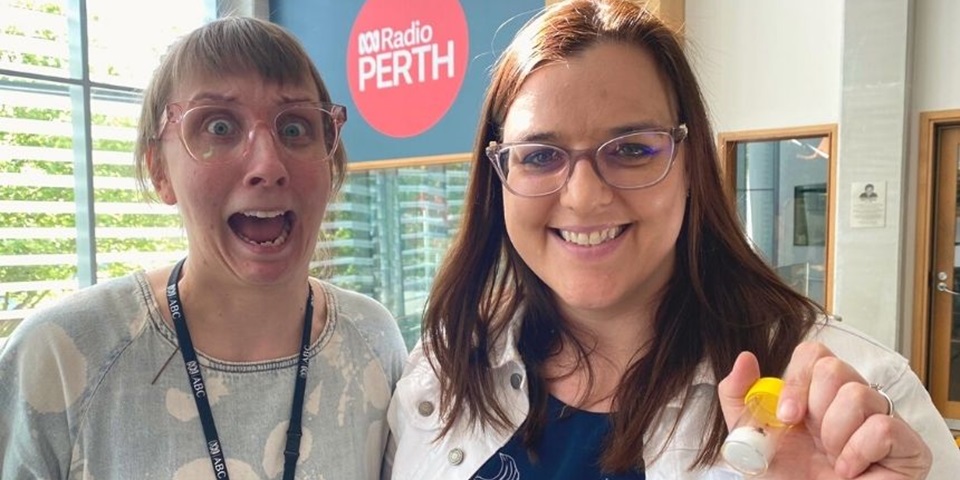News
Parasitologist gets tick of approval as Young Tall Poppy

Dr Charlotte Oskam is passionate about science communication, so much so, she once brought some props into the ABC Perth radio studio that had her host squealing with equal parts fright and delight.
During an interview about tick season on the Afternoons show, Dr Oskam surprised the host by pulling from her pocket a vial of live parasites for show and tell.
It’s an example of why Dr Oskam has been named a 2022 WA Young Tall Poppy, one of the state’s most outstanding young scientists, by the Australian Institute of Policy and Science.
She is committed to bridging the divide between academia and the general public; to educating, raising awareness, to championing Women in STEMM, and encouraging a sense of wonder.
The prestigious annual Young Tall Poppy Science Awards recognise excellence in research as well as enthusiasm for communicating science beyond the walls of the laboratory, and are widely considered to be an early indicator of Australia’s future scientific leaders.
Ticks are an increasing health threat to humans and animals around the world, and through her research at Murdoch's Harry Butler Institute, Dr Oskam is leading Australia’s research into the parasites and their diseases, but she is equally as committed to sharing her knowledge with the broader community.
I am a passionate advocate for the wide dissemination of science.” Dr Charlotte Oskam
“I am a passionate advocate for the wide dissemination of science,” she said.
“Having seen the high calibre of researchers who have previously won this award, I am truly so honoured to be considered and join the WA Tall Poppy alumni.
“I am passionate about my research, and I look forward to using this award and the AIPS platform to continue communicating with the community about the amazing work my lab group is involved in and being an advocate for Women in STEMM.”
Dr Oskam leads an international team that investigates the link between ticks, animals, and humans to uncover which microbes cause disease in Australia.
“Like mosquitoes, ticks are bloodsuckers and soon after attaching themselves to your skin and drinking your blood, they can pass on a range of disease-causing ‘bugs’ or microbes, such as bacteria and blood-parasites,” she said.
“It is vital then that scientists, like me, help us to understand why some people and their pets become sick when bitten by Australian ticks.”
Using ground-breaking science, Dr Oskam has discovered that ticks are filled with unique, potentially disease-causing microbes and she is now working on finding the cause/s of long-term illness in tick-bitten Australians.
Murdoch University colleague, and one of Australia’s leading parasitologists, Professor Una Ryan, said Dr Oskam was an outstanding, highly valued young academic who makes significant contributions to the university, the field of One Health, and the wider community.
“Science excellence and challenging the status quo is at Charlotte’s core which is demonstrated by her innovative, internationally collaborative and multi-disciplinary research,” Professor Ryan said.
“Charlotte is an exceptionally effective communicator and promoter of science, and her commitment and passion for breaking down complex science for a range of targeted audiences has led to frequent and repeated invitations to engage with the general public.
“She has used these opportunities to raise awareness of key issues relating to her research, particularly safeguarding people and their pets from ticks.”
Dr Oskam will be presented with her award at a ceremony in September, where she will also be in the running for the overall WA Young Tall Poppy of the Year prize, which in 2021 was won by Murdoch University marine biologist Dr James Tweedley.
Murdoch has been represented strongly in recent years, with marine behavioural ecologist DR Adrian Gleiss and forensic entomologist DR Paola Magni also being named WA Young Tall Poppies in 2020.